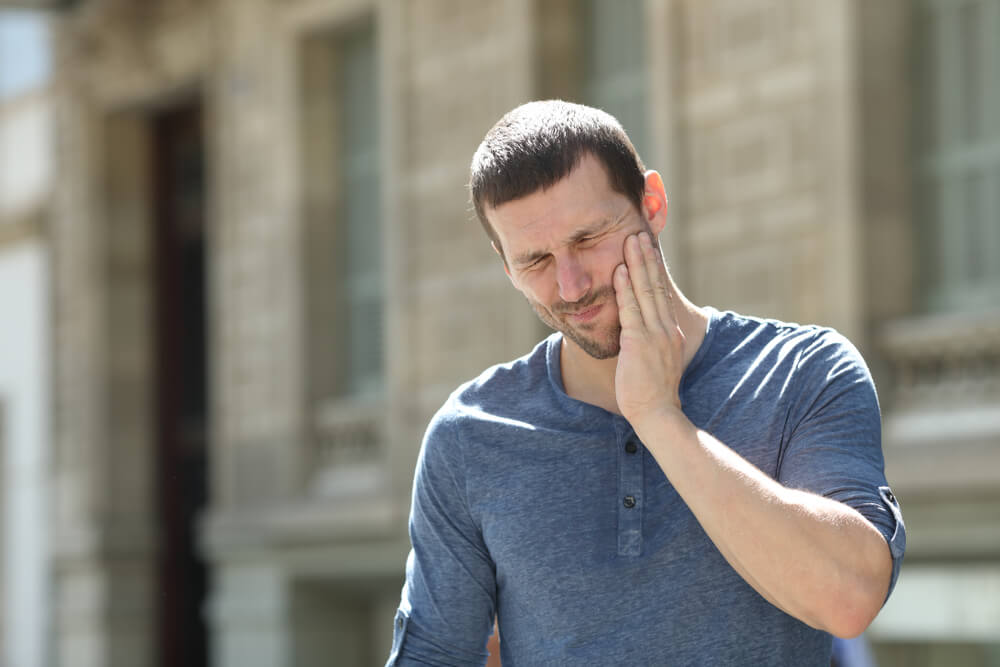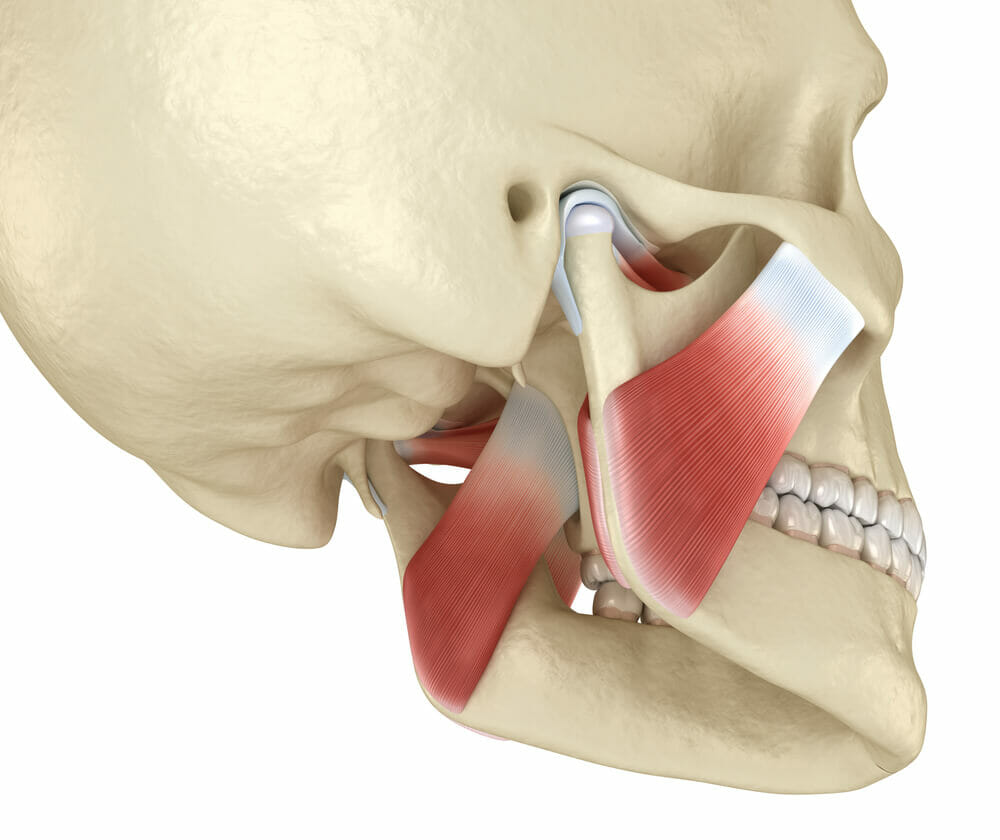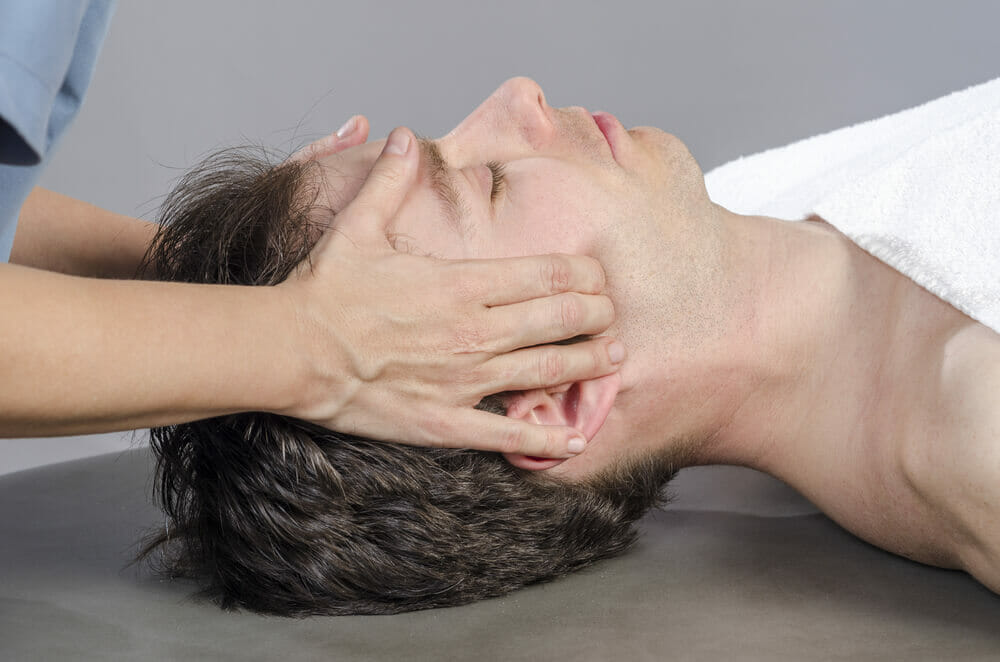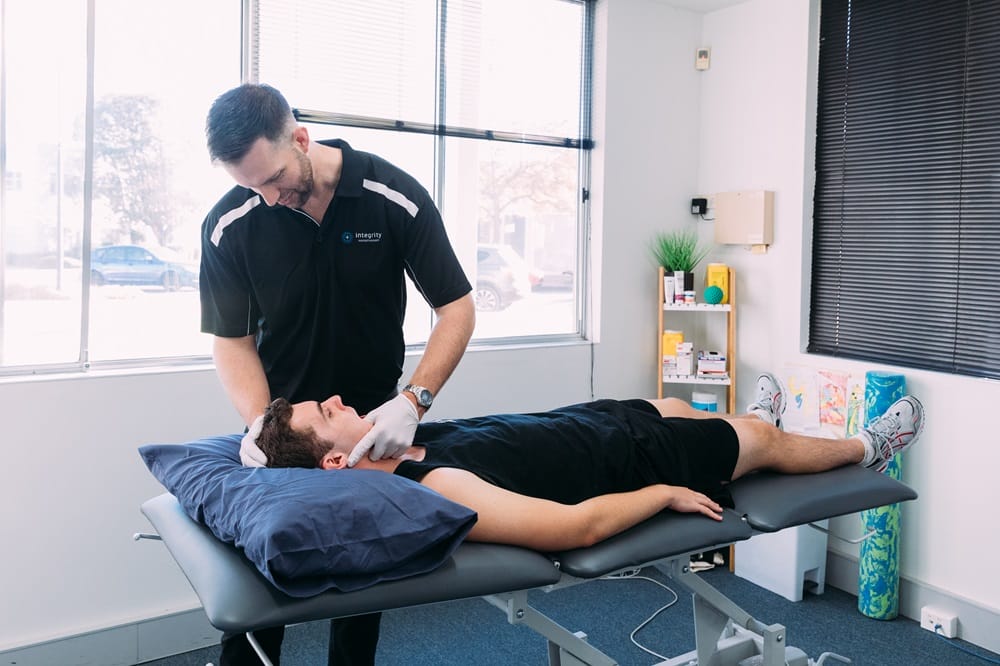
Jaw pain is one of the most common muscle joint complaints, but there are a few likely causes. If you’re experiencing jaw pain on one side, there are various factors that could be contributing, and different forms of treatment to offer relief.
You may be experiencing difficulty chewing firm foods, pressure in your cheek or face, clicking or locking of the jaw, and/or a general achiness in your jaw – among other complaints. But what are some of the main causes of one-sided jaw pain? Let’s take a look:
TMJ Disorders

The joints that attach the jaw bone to the base of the skull are called the temporomandibular joints (TMJ), and are necessary for many functions including speaking, chewing and yawning. A temporomandibular joint disorder (TMD) is when there is a problem with the TMJ.
If a TMJ disorder is the cause of your jaw pain, you will likely be experiencing additional symptoms such as clicking or locking of the jaw, difficulty opening the mouth, a blocked feeling in the ear, ear ringing (tinnitus) and/or difficulty chewing firm foods.
TMJ disorders can be caused by a myriad of factors such as muscle weakness, tightness or discoordination, jaw joint instability, poor posture, arthritis or neck dysfunction. A jaw physiotherapist will be able to diagnose a TMJ disorder, and jaw physiotherapy is an effective form of treatment. Jaw physiotherapists will identify the problem, and apply manual physical therapy treatment to relieve pain and return the jaw to its correct function.
Dental Problems
If dental issues are the cause of your jaw pain, other symptoms you may be experiencing include painful and bleeding gums, pain when chewing or swallowing, sensitive teeth and tooth pain. Some of the common dental problems that can cause jaw pain include cavities, misaligned or missing teeth, teeth grinding and growth of wisdom teeth. A dentist will be able to offer you a treatment plan if dental problems are causing you pain in your jaw.
Sinusitis

Sinusitis is caused by inflammation in the nasal cavities, often as a result of having a cold, allergies or other related medical conditions. The sinus cavities behind your cheeks may cause you to feel pain in your jaw if they become inflamed.
Additional symptoms of sinusitis include nasal congestion, facial swelling or pain, pressure in your ears and head, and fatigue. Sinusitis will often clear on its own, but you should seek medical advice if it persists beyond a week.
Heart Attack
In some cases of heart attack, the sufferer may experience one-sided jaw pain. If your jaw pain is accompanied by shortness of breath, tightness or pain in your chest and arms, nausea or vomiting, extreme tiredness or sudden cold sweats seek immediate medical attention.
Osteomyelitis

Osteomyelitis is seen only in rare cases and is less likely to be the cause for your jaw pain, but your health provider may want to rule it out if the cause of your jaw pain is not easily identified. Osteomyelitis occurs when bacteria enters bone and is a serious type of bone infection.
If you have recently had dental surgery or a jaw injury, your jawbone may have become infected. Other symptoms include a fever, swelling in your teeth or jaw, pain that worsens over time, and trouble opening and closing your mouth. Prompt medical action is necessary if you have osteomyelitis.
Trigeminal Neuralgia
Trigeminal neuralgia is similarly less likely to be causing your jaw pain, but again, your health provider may want to rule it out. The primary symptom is sudden pain that is severe, which results from pressure on the trigeminal nerve. Other symptoms may include twitching in your face, and your pain is likely to occur in your lower jaw, cheek or mouth when you move your facial muscles even minimally.
Relief Options

In general, jaw pain is not a cause for immediate concern. However, you should seek immediate medical attention if your jaw pain is sudden and severe, especially following an accident of any kind, or if accompanied by chest pain, sweating or shortness of breath.
For mild or temporary jaw pain, try the following for pain relief at home:
- Cold compress to help with swelling or to numb pain
- Warm compress to relax muscles and relieve stiffness
- Non-prescription pain relief such as ibuprofen to reduce pain and inflammation
- Rest your jaw when possible, and avoid gum and foods that require a lot of chewing.
If your pain continues or gets worse over time, seek professional advice. This list is by no means exhaustive, and the best way to find the cause of your jaw pain is to seek professional help.
You don’t need to live with jaw pain. Get support and find the cause of your jaw ache, and work on relieving the symptoms so that you can live your life pain-free. For jaw physiotherapy and TMJ treatment in Perth, get in touch with the qualified team here at Integrity Physio.




